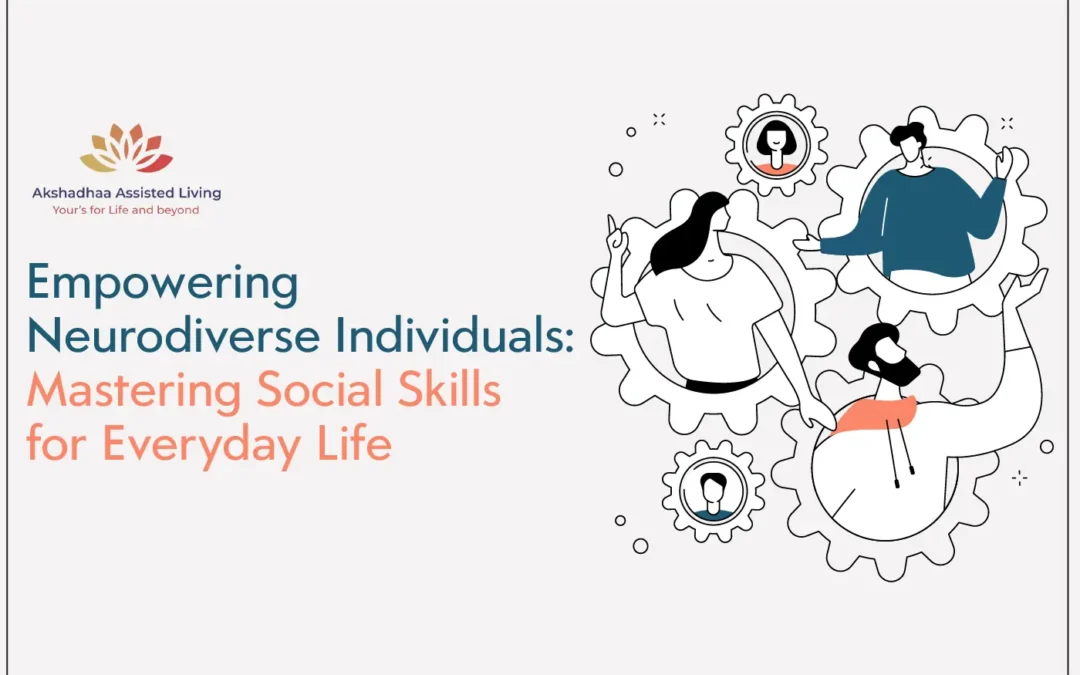What if a Simple Trip to the Grocery Store or a Game of Bowling Could Transform the Way Neurodiverse Individuals Connect with the World?
Everyday activities that many of us take for granted—choosing an apple at the market, sharing popcorn at a movie, or cheering for a friend at the bowling alley—are rich with opportunities for learning and growth. For neurodiverse individuals, these moments become the perfect backdrop to practice essential social skills, build confidence, and promote a sense of belonging.
The Importance of Social Skills for Neurodiverse Individuals
In a world that thrives on connection, social skills play a critical role in building relationships, improving confidence, and navigating everyday interactions. For neurodiverse individuals—those with Autism Spectrum Disorder (ASD), ADHD, or other cognitive differences—developing social skills can sometimes pose unique challenges. However, with targeted social skill training, these individuals can navigate their social environments step by step.
Challenges in Social Skill Development
Neurodiverse individuals often face barriers in mastering social skills due to difficulties with communication, sensory processing, or interpreting non-verbal cues. For example, individuals with autism might find it challenging to read facial expressions or understand sarcasm. Those with ADHD may struggle with impulsivity, making it harder to maintain social behaviour. Sensory sensitivities can make crowded or noisy social settings overwhelming.
The Role of Simulated Learning Environments
When it comes to social skill development (SSD), success lies in creating simulated learning environments that offer multiple opportunities to practice skills. Simulating real-world settings helps reduce anxiety and inhibitions, enabling students to gain confidence and independence while preparing them to face real-life challenges.
Practical Strategies at Akshadhaa for Real-World Skills
At Akshadhaa Assisted Living, we create simulated environments for many outdoor social situations, allowing neurodiverse individuals to practice in a scaffolded manner. A mock shopping corner or tuck shop activity breaks down skills like shopping, communication, and money handling step by step, preparing students for real shopping experiences in departmental stores. In-house movie showcases help students understand predictability, communication needs, and sensory adaptations required for real-time movie hall experiences, which can often feel overwhelming due to high sensory stimulation.
Leveraging Technology for Social Skill Training
Preparing students for gaming zones or fast-food ordering involves a structured and sequential process where they are familiarized with the environment and taught what to expect. Role-playing, social stories with real-time pictures, videos, and visuals serve as effective tools to practice real-life scenarios in advance. Technology and apps also play a crucial role, such as using online choice boards to order meals or teaching students to understand and respond to social cues appropriately.
The Role of Trained Facilitators in Social Development
Social skill sessions are typically led by trained facilitators who start with guided instruction and modelling before gradually encouraging spontaneous conversations, appropriate responses, and problem-solving. Communication scripts and starter phrases provide cues for students to practice their communication skills in a structured yet natural way.
Celebrating Small Wins and Building Confidence
The journey is filled with small yet significant victories. Over time, careful observation reveals changes in adaptive skills, problem-solving, anxiety regulation, and most importantly, a sense of achievement and joy in the students. For trainers and parents, celebrating these small wins is essential. Every step of progress, no matter how minor, deserves acknowledgment and encouragement.
Redefining Social Skill Training for a More Inclusive World
Social skill training is not just about helping neurodiverse individuals adapt to society, it’s also about creating a world that values and respects diverse ways of interaction. For neurodiverse individuals, social interactions can often feel like navigating an unfamiliar map. Yet, with tailored strategies, creative activities, and the right support, everyday experiences can transform into powerful learning moments.
Join us in supporting your child’s journey. Connect with us to explore how tailored social skill training can empower neurodiverse individuals to thrive
Follow us for more insights Linkedin


Very well detailed. One other strategy that helps my daughter enjoy a movie is for us to go through the movie synopsis before the show – she’s able to follow the story better and it’s a more interesting and pleasant experience.